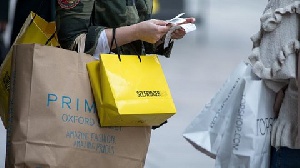Against a backdrop of the unprecedented COVID-19 pandemic, West African consumer sentiment has experienced a sharp drop in the Nielsen Consumer Confidence Index (CCI) for Quarter 2, 2020.
Ghana’s figures show a substantial decrease of 15 points to 104, while Nigeria’s CCI has decreased by 14 points to 108.
Looking at Ghana’s performance, Yannick Nkembe, Market Lead for Nielsen West Africa Expanded Market comments: “The latest consumer sentiments reflect the market reality. With the global pandemic affecting the economy and causing general uncertainty all around, consumers have readjusted their confidence levels and are also more cautious with their spend”.
Ghanaians have significantly dropped their outlook around their job prospects, with less than half (45%) saying they will be good or excellent in the next 12 months – a 16-point decrease from the previous quarter.
In terms of the state of their personal finances over the next 12 months, 60% say they are excellent or good, again a substantial 16-point drop from the previous quarter.
Ghanaians’ propensity to purchase has also seen a considerable decrease quarter on quarter, with the number of those who think now is a good or excellent time to purchase what they want or need dropping from 52% to 33% in the second quarter.
Only 43% of Ghanaians say they have spare cash, down 13 points from the previous quarter. Once they meet their essential living expenses, the highest number of consumers (74%) put their spare cash into savings – followed by 73% on home improvements/decorating and 56% who would invest in stocks and mutual funds.
One of the most significant drops in discretionary spending is on holidays, down from 58% to 27% – a clear indicator of consumers’ mind-set shift away from non-essential services and their desire to avoid unnecessary travel.
Reality bites
When asked whether they had changed their spending to save on household expenses compared to this time last year, 75% said yes…up seven points from the previous quarter.
To reduce expenses, 53% said they spent less on new clothes, 52% on out of home entertainment, with the same figure deferring on the replacement of major household items.
When looking at the real-life factors that are affecting their outlook, the top consumer concerns over the next twelve months were increasing food prices (29%), followed by work/life balance (23%) and their children’s education (22%). Nkembe comments: “Ghana has previously experienced strong business prospects, and with the relatively earlier easing of restrictions to stimulate its economy, recovery in Ghana is likely to rebound sooner. We expect consumers to revert to previous consumption behaviours, although some of their attitudes will have fundamentally or permanently changed post the pandemic”.
Click to view details



Business News of Wednesday, 8 July 2020
Source: thebftonline.com







![Deputy Minority Leader, Emmanuel Armah-Kofi Buah [L] and First Lady Rebecca Akufo-Addo Deputy Minority Leader, Emmanuel Armah-Kofi Buah [L] and First Lady Rebecca Akufo-Addo](https://cdn.ghanaweb.com/imagelib/pics/114/11465182.295.jpg)









